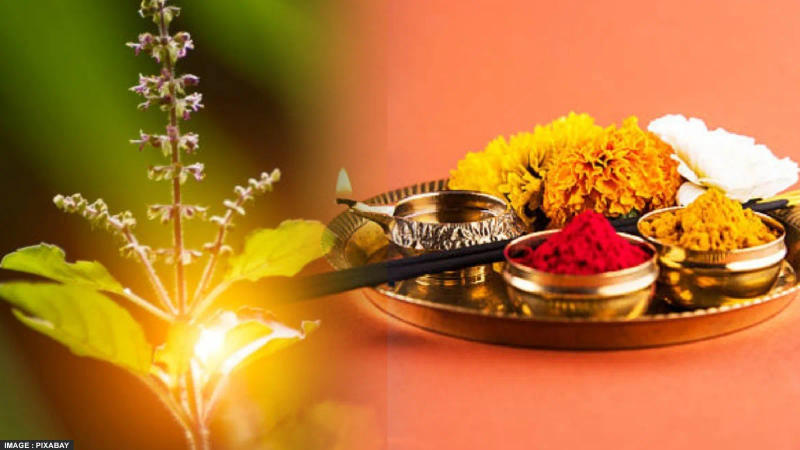Published 14:19 IST, December 25th 2023
What is Tulsi Pujan Diwas and why is it celebrated on December 25 every year?
Know the history behind the celebration of the Tulsi Pujan Diwas in India on December 25.

The Tulsi Pujan Diwas is being celebrated on December 25 among Hindus every year. Tulsi is considered to be an auspicious plant in India. Every Hindu household has a Tulsi plant placed on the mantle in the home’s aangan (courtyard), in what is known as the Tulsi Vrindavan.
Usually, the lady of the house prays to this Tulsi plant everyday to bring good luck and abundance to the family. Before any auspicious beginning, just like devotees pray to Lord Ganesha, the Tulsi Maata or the holy plant Goddess Tulsi is also worshipped to remove any obstacles.
While Indians participate in the celebration of Christmas on December 25 in large numbers, they also mark the occasion of the Tulsi Pujan Diwas on the same day.
History, Significance, Date and Time of Tulsi Pujan Diwas
This is a relatively new day to be observed in India. The Tulsi Pujan Diwas was first celebrated on December 25, 2014, and is now regularly being followed every year. This day is not to be confused with the Tulsi Vivah day, which usually falls after the festival of Diwali.
The Tulsi Pujan Diwas is celebrated in the Hindu calendar on the Chaturdashi Tithi. This year, the Tithi falls on December 25, 2023 at 05:55 am, and ends on December 26, 2023 at 05:47 am.
Rituals of Tulsi Pujan
Also known as Vishnupriya, the Tulsi plant is usually worshipped daily in Indian households, especially the Hindu homes.
Tulsi is considered the goddess of abundance and good fortune, and praying to her is believed to bring in good luck.
On Tulsi Pujan Diwas, one could bring in a new Tulsi plant at home, or even donate a Tulsi sapling to a temple or place of worship.
Updated 14:19 IST, December 25th 2023




